Retailers face a raft of challenges meeting new goals from Wrap
Last week’s announcement by Wrap that packaging on fresh fruit & veg has been added to the pile of “problematic plastics” to be eliminated from shelves under the UK Plastics Pact has been hailed as a “game-changer”.
Yet the industry faces major technical and marketing barriers if the fruit & veg aisles are to be truly overhauled.
So, can supermarkets rise to the challenge and what will the impact be on the supply chain and food waste?
Wrap has listed 24 products, including apples, bananas, broccoli and cucumbers, which will be the first to see packaging scrapped under sweeping changes which it predicts will save over 21,500 tonnes of plastic waste per year. It says it is confident up to 80% of the packaging can re removed by 2025.
“Prior to the pandemic, supermarkets were reporting an increase in the sale of loose fresh produce relative to packaged,” says Wrap strategic adviser Helen Bird. But “covid had a negative impact on that” as consumers shunned loose produce and technological progress stalled. “While we’ve had some reports of it increasing as restrictions are lifted, we’ve got a way to go,” Bird says.
“There is also a huge challenge for supermarkets to move together as one.
“A key next step is to convene retailers with a view to developing an agreed pathway and phased timetable for rollout.”
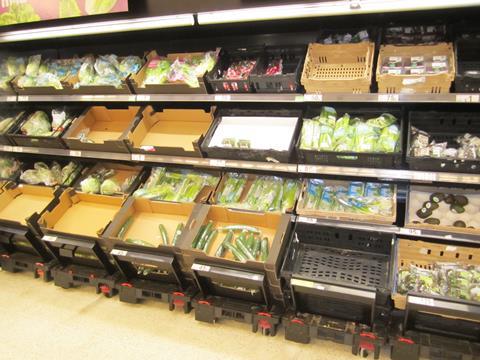
Incredibly, considering other technology advances, many supermarkets still lack the ability to even weigh loose fruit & veg at many of their tills, let alone get rid of all packaging, with the discounters particularly behind the curve.
Another potential hurdle is the fact “packaging is sometimes used to differentiate lines, such as ‘wonky’, different sizes, and organic”, says Bird.
“Varieties can be differentiated using other methods such as compostable stickering, however, and produce can be sold by weight,” she adds. That is of course, if the technology exists.
Pricing could prove a thornier issue still. Supermarkets have traditionally resisted any interference, but Wrap has told The Grocer it expects loose items to be priced “lower or at least the same as packaged” equivalents for the shift to succeed.
For online retailers there is also the challenge of re-engineering robots in automatedselection to handle loose produce.
Wrap also last week revealed research claiming to bust the myth that removing fruit & veg packaging could cause a dramatic spike in food waste.
Combined savings
In fact, trials of five key products found selling them loose and removing best before dates could result in a combined saving of around 100,000 tonnes of household food waste, more than 10,300 tonnes of plastic and 130,000 tonnes of CO2e.
The research argues allowing consumers to buy what they need rather than the packet size available, combined with cannier use of fridges and an end to often unnecessary best before dates, can more than offset any shortening of shelf life.
Wrap says prioritising items that are already routinely sold loose will help suppliers adapt.
However, critics point to a 2020 study by the Austrian Research Institute for Chemistry and Technology, which found that for just one product – cucumbers – a plastic film cut waste from 9.4% to 4.6%.
“Wrap’s recommendations are quite frankly appalling and bloody dangerous,” claims one source. “They ignore the impact of food waste across the supply chain by focusing only on what happens with the consumer.
“But the environmental benefit of reducing waste through packaging is three times higher than the cost of packaging.”
Nevertheless, supermarkets have already agreed to report amalgamated data showing their progress in getting rid of fruit & veg packaging and are under increasing pressure to present individual figures to an ever more plastic-hostile public.
Unwrapping the problem is going to be a prickly business, but it is surely now too late to turn back the clock.







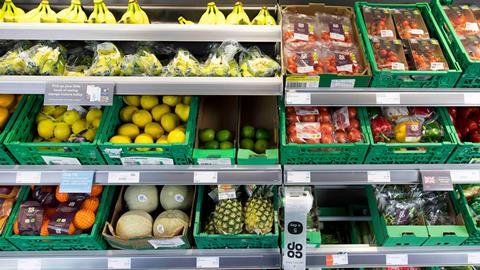

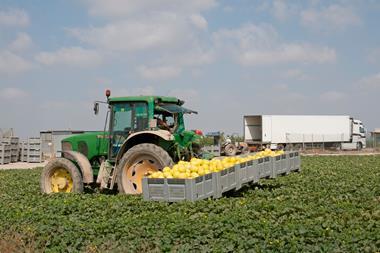
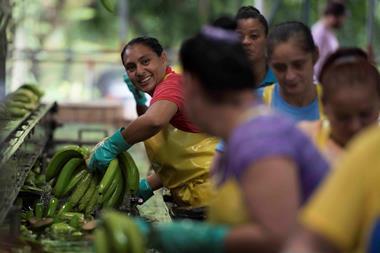






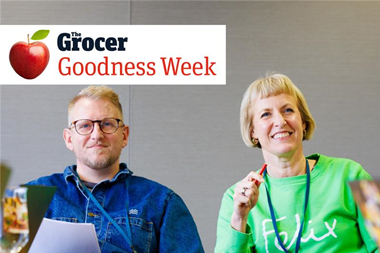


1 Readers' comment